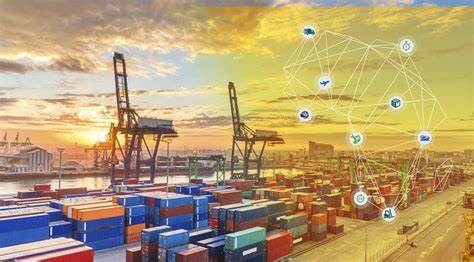The Palestinians in Gaza are the people who are bearing the brunt of this war and it has not been kind to them. Hamas may have not been wise when it launched its attack against Israel on October 8 which led to the onslaught, but this did not mean Israel could respond with such a provocative display of murder against an entire people. Washington for its part needs to stand up to the Israelis and say enough is enough. It should cut short the export of weapons to the Israelis in exchange for a ceasefire. But give the repression of student protests against the Zionist regime, it may not happen any time soon. Although many politicians in the governing U.S. Democratic Party are also raising their voices.
A few months later, in August, Secretary of State Antony J. Blinken issued a directive instructing State Department officials overseas to investigate incidents of civilian harm by foreign militaries using American weapons and recommended responses that could include halting arms deliveries. (The New York Times)
The Africa Continental Free Trade Agreement (AfCFTA) could bridge the enlarged gap between African Nations and financial and economic stability. This is a bridge that needs to be built with cooperation among member states, and cemented with the lowering of tariffs.
- The Africa Continental Free Trade Agreement (AfCFTA) has sparked renewed drive and energy for trading and investing in Africa, yet extending or establishing a footprint on the continent still has its challenges.
- Regulatory reform is taking place, but is still slow, necessitating a keen understanding of the country’s legislative requirements and business culture.
- Tax matters can be complex and infrastructure challenges shouldn’t be underestimated.
- Safety, sustainability and skills development should form part of an organization’s planning for expansion on the continent.
- Partnering with a company that has deep knowledge of the country’s specialized nuances will enable smoother, swifter growth. (Hosted on MSN)
- AfCFTA’s main purpose is to improve free trade and integration among member states of the African Union (AU) who are signatories to the free trade agreement. It is meant to improve industrial infrastructure and lower trade barriers such as tariffs.
- It will take the cooperation of both governments and companies to bring the daily practice of free trade as promoted by AfCFTA to fruition. Regulations such as tariffs and red tape (rigid rules and regulations that are redundant will have to be removed).
- Sharing of information as regards to tax incomes and infrastructure plans could be a standard procedure between member states.
- The AU and the governments of member states could sponsor training and education of companies in safety, sustainability and skills development.
- Member states should be transparent about their dealings and allow foreign companies to join with local companies that want to further their growth and create jobs.
Starting with an end in mine, the Africa Continental Free Trade Agreement (AfCFTA) requires a “backbone” for Africa to co-exist with its international counterparts, but its biggest challenge is that the 2063 Agenda is still in the proverbial implementation stage without its own engineering intellectual property (IP) for railway infrastructure. It’s coherently unfortunate that 2063 Agenda for Africa is being implemented under the undeniable and dominating shadow of the silent investment war between the Eastern “Belt and Road” and the Western Investment initiatives, where they have incorporated some of the key geostrategic countries in Africa, like Kenya and Ethiopia, amongst others, for their own African agenda. Technological corporations hold unprecedented power and influence where their solutions to political, environmental, and economical challenges are rampant.(IOL)
Africa is certainly changing and evolving to keep up with the rest of the world. When we are speaking about developing a “backbone” for the free trade agreement we are referring to infrastructure such as a major railway, a canal or a road. The 2063 Agenda is the key to understanding how AfCFTA can be implemented in terms of infrastructure such as connectivity of the continent’s rail ways. African powerhouses such as Kenya, Tanzania, South Africa, Ethiopia, and Ghana need to look at themselves to examine how they can cooperate with each other to cooperate on trade. Ethiopia for example has its own commercial problems cooperating with its coastal neighbour Eritrea.
The danger of international corporations such as those involved in mining and extracting raw materials and developing infrastructure, needs to make host nations weary.
They can easily manipulate regional plans such as Agenda 2063.
Perpetual engineering obstacles in African railway flagship projects have been extended in Kenya, Morocco and Ethiopia to use European Union (EU) or international Union of Railway standards, while some may opt to use Chinese railway technology standards. While the African continent is pursuing the AfCFTA objectives, it needs to reinforce and actively join in the establishment and revision of strategies, policies and rules in international Standardization organizations (ISO) and UIC. Moreover, Africa’s railway network should encourage experts and institutes to undertake more important roles in these organizations so as to make a greater contribution and promote influence in the activities of these organizations.(IOL)
So, Africa needs to set its standards as regards to railway engineering. This is the correct thing to do in order to develop infrastructure that suits its own environment. South Africa under President Cyril Ramaphosa can help by promoting the importance of connectivity of rail ways among our neighbours in the Southern African Developmental Community (SADC) and also across the continent. Connectivity via rail way is essential linking parts of the continent to the wider market. This will lead to an increase in job creation and wealth accumulation. Ministers of Rail ways and transportation need to meet to discuss what form of standards would suit connected railways and roads in Africa.
South Africa could play a crucial role in that regard.
Article written by:
Yacoob Cassim
Journalist at Radio Al Ansaar






